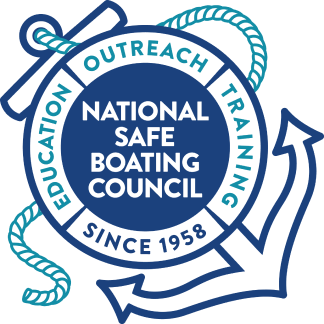The National Safe Boating Council (NSBC) and the National Oceanic and Atmospheric Administration’s (NOAA) National Weather Service are celebrating 23 years of partnership for the annual National Safe Boating Week. This year’s National Safe Boating Week will be held May 21-27, 2022.
“Knowing how to understand the weather forecast, including air and water temperatures, sustained average winds and gusts, craft advisories, storms, fronts, and more is critical to ensure a safe and responsible boating experience,” explained Peg Phillips, executive director of the NSBC, a national non-profit that helps create a safe boating experience for all recreational boaters. The NSBC is a Weather-Ready Nation Ambassador, as a part of NOAA’s Weather Ready Nation™ initiative.
National Safe Boating Week is held annually the week before Memorial Day as part of the NSBC’s Safe Boating Campaign, a global awareness effort that encourages boaters to make the most of their boating adventure by being responsible. NSBC and NOAA offer boating safety resources atwww.safeboatingcampaign.com/resources/national-safe-boating-week-toolkit and www.weather.gov/safety/safeboating-week.
According to the U.S. Coast Guard, there were over 475 total weather and hazardous water-related accidents, resulting in over 104 fatalities and 176 injuries in 2020 alone.
“Often boaters do not fully consider or plan for the impact that weather conditions can have on their entire boating outing,” said Darren Wright, national marine program manager at NOAA’s National Weather Service. “They must make sure to check the weather forecast before going out and have access to NOAA Weather Radio or other notification methods for changing weather to stay safe on the water.”
Furthermore, boaters should have at least two communications devices with them when on the water that work when wet. Satellite phones, emergency position indicating radio beacons (EPIRB), VHF radios, and personal locator beacons (PLB) are recommended as cell phones are not reliable in emergency situations.
In addition to keeping an eye to the sky and checking their favorite weather app, boaters may tune into the NOAA Weather Radio All Hazards (NWR) on a VHF radio to keep track of weather conditions. NWR includes more than 1000 transmitters, covering all 50 states, adjacent coastal waters, Puerto Rico, the U.S. Virgin Islands, and the U.S. Pacific Territories.
About the National Safe Boating Council
The National Safe Boating Council (NSBC) is a national catalyst for recreational boating safety and organizer of the Safe Boating Campaign, with support from boating safety advocates around the world. The Safe Boating Campaign is produced under a grant from the Sports Fish Restoration and Boating Trust Fund, administered by the U.S. Coast Guard. For more information about the NSBC and its programs, please visitwww.safeboatingcouncil.org.
About NOAA
The NOAA’s National Weather Service is the official government source for weather forecasts, watches and warnings in the U.S. The National Weather Service’s marine forecasts provide timely weather information relating to U.S. coastal and offshore waters, the Great Lakes, and the open oceans to ensure the safety of life and protection of property, promote international and interstate commerce by improving the efficiency of marine operations, mitigate environmental impacts and enhance the quality of life for the United States. NOAA’s National Ocean Service provides navigation products, such as nautical charts, tides, and currents, that protect lives, strengthen the maritime economy, and position America for the future.
###
Media Contacts:
Yvonne Pentz, National Safe Boating Council, ypentz@safeboatingcouncil.org, 440-670-1294
Nicole Berckes, NOAA’s National Weather Service, nicole.berckes@noaa.gov, 202-603-2523


